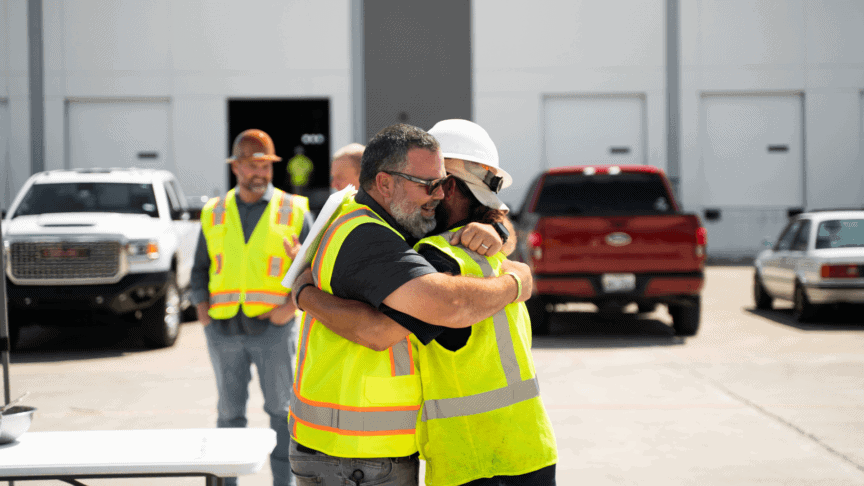Estimated reading time: 7 minutes
When it comes to building or expanding your commercial space, contractors can make or break your experience. A good one is worth his or her weight in gold, keeping you on time and within budget. The challenge is finding an excellent contractor who can also capture and deliver your vision. But, if you know what to look for, a match can be made. You want to identify the best person to meet the needs of your growing business. When interviewing contractors, keep an eye out for the following signs.
Table of contents
- The Present You With a Workable Plan
- They Have Good Time Management Skills
- They are Sufficiently Insured
- Their References Check Out
- They Have Good Working Relationships with Subcontractors
- Workers are Cross-Trained
- They are Competitively Priced
- The Superintendent Has Mud on Their Boots
- They Keep You in the Loop
- Workers Receive Adequate Safety Training
- They Take Responsibility
- They Put It In Writing
- They Have Good Interpersonal Skills
- They Have a Reliable Support Team in Place
The Present You With a Workable Plan
Solid contractors are realistic about time frames and won’t over-promise results that will be difficult to deliver. They understand the importance of scheduling subcontractors in a logical order so that crews don’t have to return to finish jobs. Prior to the launch of any project, hold a pre-construction meeting between the parties involved with the project. Here, the chain of command is established and safety protocols detailed. Failing to arrange this meeting with the subcontractors can lead to confusion as the project progresses.
They Have Good Time Management Skills

A good contractor shows up on time for planned meetings with clients and brings projects to a close by the deadline. If a contractor is unable to manage their time efficiently, it can cost the client money and induce frustration. Certainly, there can be good reasons for delays on a project (e.g., prolonged inclement weather conditions or natural disasters). But good contractors know to prepare for some lost time when making their estimates for clients. If your contractor isn’t MIA on the job site and shows up on time for meetings, it’s a good indication that your project is a priority.
They are Sufficiently Insured
Depending upon the requirements of your state, it’s important to confirm your contractor is fully licensed, holds all correct permits and is sufficiently bonded or insured. Most required licensing for commercial contractors can be easily verified online. No matter the particulars, you’ll want to go the extra mile to confirm your contractor is in good standing with all municipal and state regulators.
Their References Check Out
If this is your first time working with a particular contractor, ask for and verify their references. No legitimate contractor should have problems with giving the names and contact information of several recent clients. Those who do may be trying to hide bad reputations in the industry.

They Have Good Working Relationships with Subcontractors
Reliable and dependable subcontractors dramatically impact a project, positively or negatively. Therefore, it’s important that the contractor you choose has unquestionable relationships with the subcontractors on the job. If there’s a history of bad blood between a sub and your contractor, it could adversely affect the project’s outcome — not to mention the bottom line. A single instance may be overlooked. But if you can’t find subcontractors who want to work with your contractor, it’s a definite warning sign.
Workers are Cross-Trained

Workers who are certified to operate several types of
They are Competitively Priced
When is a deal too good to be true? If a contractor’s bid is more than marginally lower than the competitors’, you have to wonder why. Does the contractor use cheap materials to bring the price down or hire anyone off the street to do the labor? That’s not a good deal, that’s a recipe for disaster. Competent and trustworthy contractors submit reasonably priced bids on jobs.

The Superintendent Has Mud on Their Boots
A super who spends all day in an air-conditioned trailer with their feet propped up on a desk can’t stay on top of quality control. Neither can they ensure that the job specs are being followed to the letter. If your superintendent sports muddy boots, that indicates they’re involved on-site, making sure the job is being handled correctly.
They Keep You in the Loop
Good contractors practice regular communication, even when it comes to negative news and setbacks. If you’re awaiting a shipment of marble to arrive from Italy but it gets delayed, you need to be made aware. It’s not necessary for a contractor to stay in daily contact with clients. But anything that could potentially cause a problem should be communicated promptly.
Workers Receive Adequate Safety Training

Sometimes, contractors hire extra crew members for specific jobs. All workers on the job site, however, should be sufficiently trained in operations and safety. Failing to train the entire crew could bring a host of costly, avoidable problems and OSHA violations.
They Take Responsibility
No client wants to hear a long list of excuses why a project can’t be brought in on budget and on time. Yes, unforeseen events can drag a project out longer than anticipated. But your contractor should always accept responsibility for the problem and be ready to deploy Plan B.
They Put It In Writing

Verbal agreements can hold up in court, but it’s far easier to trust someone to honor an agreement when it’s spelled out in black and white. Sometimes, during the course of a project, changes need to be made. These changes should be detailed in writing and signed by the parties. A reputable contractor won’t balk at signing off on these terms.
They Have Good Interpersonal Skills
Contractors need to communicate effectively — with the labor force, clients, authorities and subs. If they are prone to slamming doors, cursing or yelling, they may lack the necessary ability to convey important information civilly to those who need to know.
They Have a Reliable Support Team in Place

The best contractors want your build experience to be flawless. To that end, they should have a planning and design team on standby to deal with any problems that might crop up along the way.
It’s possible that a good contractor might fall short in a couple of categories — after all, they’re human. If they don’t cut safety corners or dismiss your concerns about the project’s direction, it’s usually fine to give them a pass on minor matters. Identify your nonnegotiables and know what you are and aren’t comfortable with. And remember, always keep in mind the importance of trust and communication.

